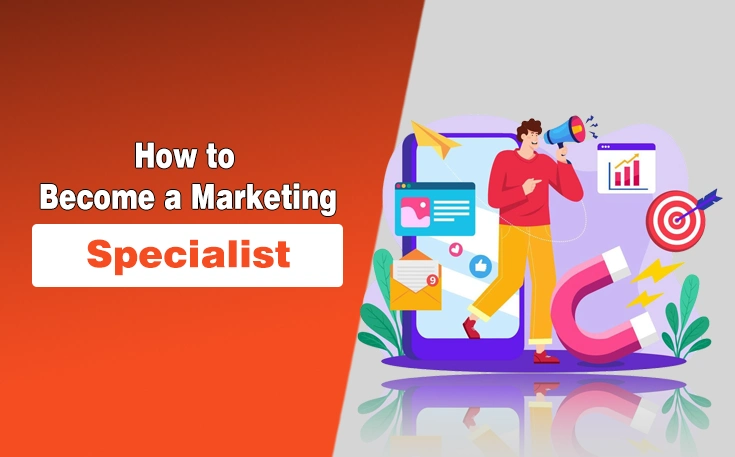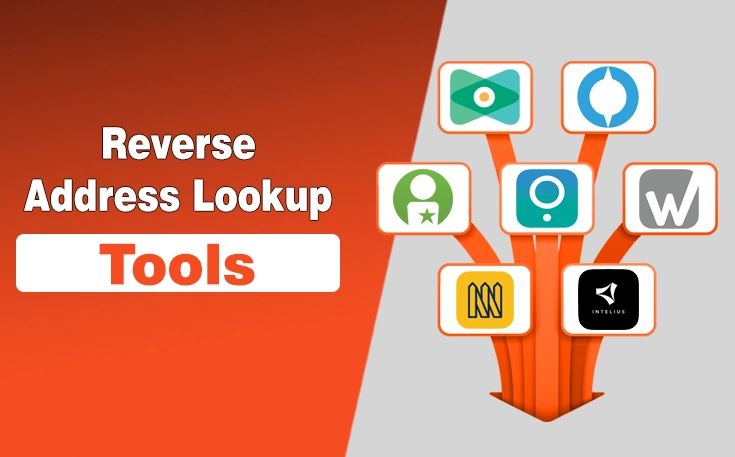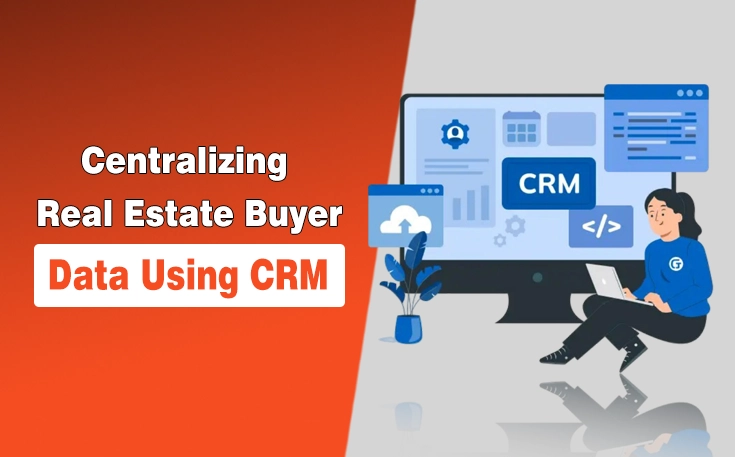Ever wonder how brands grab your attention on Instagram, YouTube, or even billboards? That’s the magic of marketing, and behind it all are marketing specialists. They help businesses grow, get noticed, and connect with the right people.
If you enjoy being creative, analyzing trends, and coming up with smart ideas to promote things, becoming a marketing specialist might be the perfect path for you. The good news? You don’t need years of experience to get started—just curiosity, consistency, and the right steps.
Let’s explore how you can turn your passion into a real career in marketing.
What is a Marketing Specialist?
A marketing specialist is a person who plans, creates, and manages marketing strategies to help a business grow. They work to understand customer needs, promote products or services, and make sure the brand message reaches the right audience.
They often handle campaigns, social media, advertisements, email marketing, and website promotions. Their goal is simple: make more people notice and buy from the business.
In short, a marketing specialist is the bridge between a brand and its customers!
What Does a Marketing Specialist Do?
A marketing specialist helps businesses promote their products or services. They study the market to understand what customers want and need.
Among the other responsibilities, these specialists create strategies to reach these customers through advertising, social media, and other channels. They also deliver marketing translation services and analyze data to see how well their marketing efforts are working and make changes to improve results. Overall, they help to increase sales and build relationships with customers.
How to Become a Marketing Specialist? Necessary Steps
You will be successful if you have proper map or steps in mind for any task. Here’s a simple roadmap you can follow to become a perfect marketing specialist:
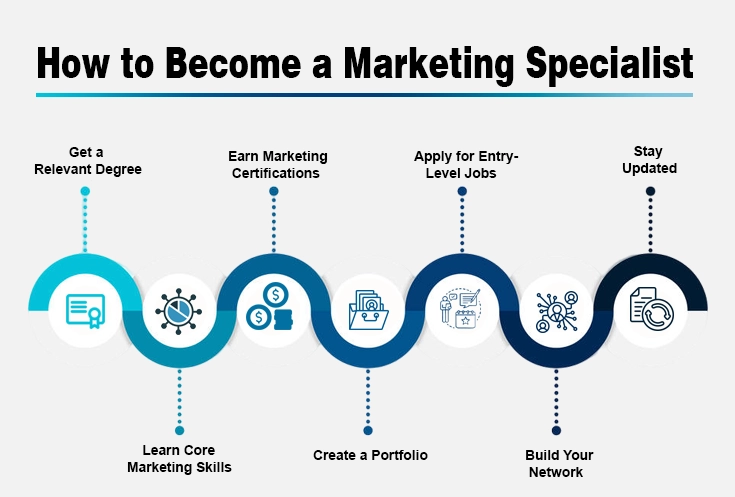
1. Get a Relevant Degree
Start by building a strong educational foundation. Enroll in a Bachelor’s program related to marketing, such as:
- Marketing: Teaches you how to understand customer needs, build brand strategies, and run effective advertising campaigns.
- Business Administration: Gives a broad view of how businesses operate, with a focus on strategy and management, including marketing.
- Communications or Journalism: Helps you master how to communicate ideas clearly — a vital skill in content and social media marketing.
2. Learn Core Marketing Skills
To become a good marketing specialist, you’ll need to develop hands-on skills that are used in the real world. These include:
- SEO (Search Engine Optimization): Helps your content rank higher on Google.
- Social Media Marketing: Learn how to create posts, run ads, and engage followers on platforms like Instagram, Facebook, LinkedIn, and TikTok.
- Email Marketing: Learn to design and send campaigns using tools like Mailchimp or HubSpot.
- Data Analysis: Understand how to read marketing data (like traffic or click-through rates) and use it to improve performance.
You can learn these skills through online platforms like Coursera, Google Digital Garage, or HubSpot Academy.
3. Earn Marketing Certifications
Certifications show employers you’re serious and knowledgeable — even if you don’t have much job experience yet. Some great ones include:
- Google Ads & Analytics Certification
- HubSpot Content Marketing Certification
- Meta (Facebook) Blueprint Certification
- SEMRush or Moz SEO Certifications
These can boost your resume and build confidence in your skillset.
4. Create a Portfolio
Your portfolio is proof of what you can do. It should include real-world projects, like:
- Social media campaigns you ran
- Blog posts you wrote
- SEO or ad reports
- Designs or email campaigns
You can get these by doing internships, freelancing, or even creating mock projects for your favorite brand. Share your work on a personal website or LinkedIn profile.
5. Apply for Entry-Level Jobs
Start your career with roles that allow you to learn and grow, such as:
- Marketing Assistant
- Content Creator
- Social Media Coordinator
- Email Marketing Associate
These roles help you gain experience, learn how companies run campaigns, and understand customer behavior in real time.
If you are looking for marketing jobs to start your career in marketing, we have enlisted the Top 10 Highest Paying Marketing Jobs that help you earn passive income.
6. Build Your Network
Marketing is also about who you know. Connect with professionals through:
- Marketing Webinars & Online Communities
- Local Business Events or Workshops
Building relationships can lead to mentorship, job referrals, and inside knowledge about the industry.
7. Stay Updated
The marketing world changes fast. New platforms, tools, and trends pop up all the time.
To keep growing:
- Subscribe to blogs like HubSpot, Neil Patel, or MarketingProfs.
- Watch YouTube channels or follow marketers on Twitter and LinkedIn
- Take mini-courses to learn about the latest tools like AI in marketing or TikTok ads
Qualifications Required to Become a Marketing Specialist
To become a marketing specialist, having the right education is very important.
Most companies prefer candidates who have at least a Bachelor’s degree in Marketing, Business Administration, Communications, or a similar field. A marketing degree gives you a strong understanding of consumer behavior, advertising strategies, branding, and digital marketing basics.
- Bachelor’s in Marketing: It gives a solid foundation in market research, branding, consumer behavior, and digital marketing.
- Bachelor’s in Business Administration: BBA covers business strategy, management, and marketing concepts—great for understanding how marketing fits into the bigger picture.
- Bachelor’s in Communications: Bachelor in Communications focuses on messaging, media, and public relations—helps you craft and deliver effective marketing messages.
- Bachelor’s in Journalism: Teaches content creation, storytelling, and writing skills—very useful for content marketing and copywriting.
- Bachelor’s in Psychology: It helps you understand consumer behavior and decision-making—valuable for marketing campaigns that connect emotionally with people.
- Bachelor’s in English: It sharpens writing, editing, and critical thinking skills—helpful for content-driven marketing roles.
Skills Required to Become a Marketing Specialist
Apart from education, you need to build practical skills:
- Digital Marketing Skills: You should know about SEO (Search Engine Optimization), paid advertising (Google Ads, Facebook Ads), social media marketing, and email campaigns.
- Content Creation and Copywriting: Being able to create engaging blogs, ads, and social media posts is a big plus.
- Data Analytics: Marketing today is all about results. You need to know how to use tools like Google Analytics to track how well your campaigns are performing.
- Creativity and Innovation: Coming up with new ideas for campaigns and promotions will make you stand out.
- Communication Skills: Whether you are writing emails, giving presentations, or posting online, you need to explain ideas clearly and attractively.
- Teamwork and Project Management: Marketing specialists often work with designers, sales teams, and executives. Being organized and able to collaborate well is essential.
Today, companies also value certifications like Google Digital Garage Certificates, HubSpot Content Marketing Certificate, or Meta’s Social Media Marketing Certificate. These show you are serious about upgrading your skills and staying updated with industry trends.
Job Opportunities for a Marketing Specialist
The good news is that marketing specialists are needed in almost every industry. Businesses today understand that without marketing, they can’t grow — so whether it’s a small shop or a multinational company, they need skilled marketing people.
You can work in many different areas, such as:
- Advertising Agencies: You’ll create campaigns for different brands, work with creative teams, and manage client accounts.
- E-commerce Companies: You can plan online promotions, manage websites, and work on sales campaigns for stores like Amazon, Shopify, or independent brands.
- Startups and Tech Companies: You’ll promote new apps, software products, and services using digital platforms and influencer marketing.
- Healthcare and Pharmaceutical Companies: In this field, marketing specialists promote health services, medicines, hospital care, and medical technologies to a wide range of audiences.
- Financial and Insurance Companies: Here, you’ll create marketing strategies for loans, credit cards, insurance plans, and investment services.
- Education Institutions: Schools, universities, and online course platforms need specialists to advertise programs and increase enrollments.
There’s also a rising demand for freelance marketing specialists. Many small businesses hire freelancers to manage their marketing part-time or project-by-project. This gives you the flexibility to work remotely and handle multiple clients at once.
Job Titles You Might See:
- Digital Marketing Specialist
- Content Marketing Manager
- SEO Specialist
- Email Marketing Coordinator
- Paid Media Specialist
- Growth Marketer
- Social Media Strategist
Many marketing specialists later specialize even further — such as becoming only SEO experts, performance marketers, or brand strategists — based on their interests and strengths.
This means there is always room to grow and specialize in marketing!
Expected Salary and Career Growth for a Marketing Specialist
Here’s what you can expect when it comes to money and career path:
| Country | Average salary per Year |
| USA | $61,031 |
| Australia | $75,000 to $90,000 |
| UK | £51,250 |
Career Growth Path:
- Junior Marketing Assistant → Marketing Specialist → Marketing Manager → Senior Marketing Manager → Marketing Director → Chief Marketing Officer (CMO)
As you gain certifications and experience in trending areas like AI marketing, influencer marketing, or SEO, your career can grow even faster!
Must-Know Tools for a Marketing Specialist (With Pros and Cons)
1 – Canva
Canva is a very easy-to-use graphic design tool that helps you create social media posts, presentations, posters, and many other visuals without needing professional design skills.
Key Features:
- Drag-and-drop design editor
- Free templates for social media, flyers, resumes, and more
- Access to stock photos, icons, and videos
- Brand Kit for consistent branding (in paid version)
| Pros | Cons |
| Very easy to learn, even for beginners | Advanced designs are harder without professional tools |
| Tons of free templates and design elements | Some of the best features are locked behind the paid plan |
| Great for quick social media graphics |
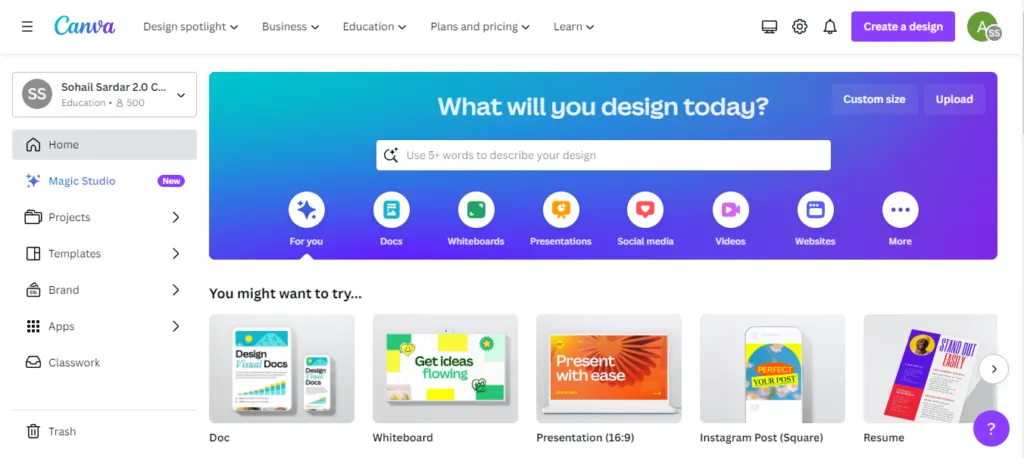
2 – Google Analytics
Google Analytics is a free tool that tracks how people find and interact with your website. It tells you where visitors come from, what pages they visit, and how long they stay.
Key Features:
- Real-time traffic reports
- Audience behavior tracking
- Conversion tracking (goal setting and measuring)
- Traffic source analysis (organic, paid, referral, etc.)
| Pros | Cons |
| Provides deep insights into visitor behavior | Can feel very confusing for beginners |
| Helps measure success of marketing campaigns | Some advanced features require technical setup |
| Totally free to use |
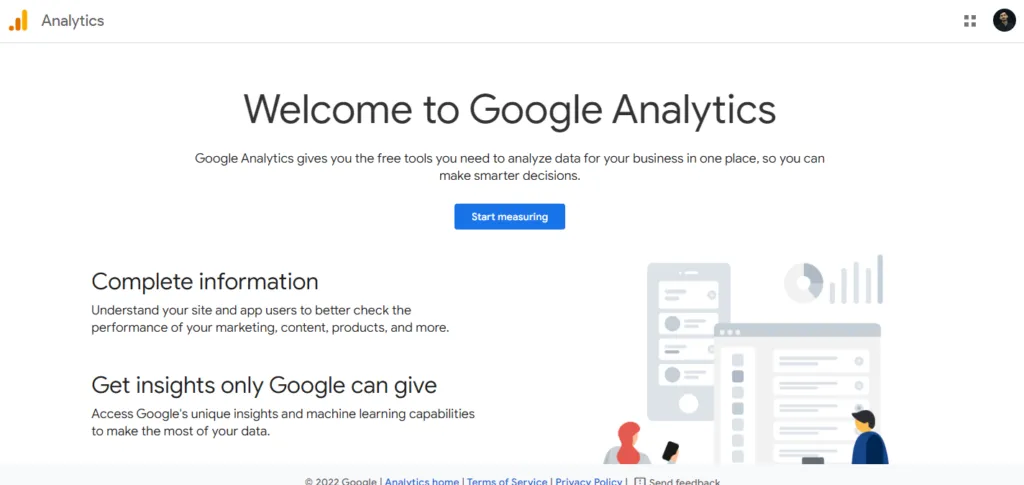
3 – SEMrush
SEMrush is an all-in-one marketing tool mainly used for SEO, keyword research, competitor analysis, and improving website visibility.
Key Features:
- Keyword research and tracking
- Competitor website analysis
- Site audit tools for technical SEO issues
- PPC (paid advertising) research tools
| Pros | Cons |
| Combines SEO, content, and advertising tools in one platform | It’s quite expensive, especially for small businesses |
| Excellent competitor analysis features | Some data (like backlink counts) may be slightly outdated |
| Easy to track rankings and fix website issues |
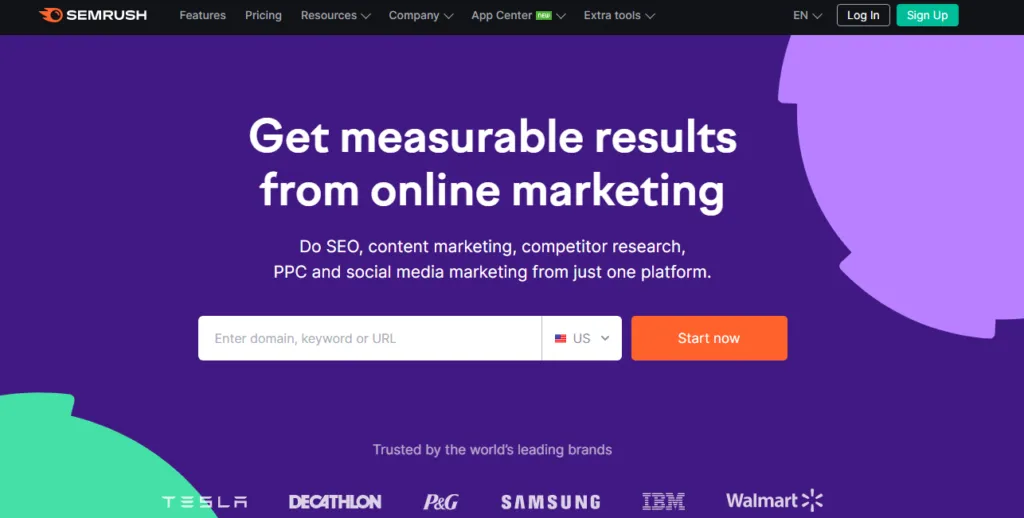
4 – Hootsuite
Hootsuite is a social media management tool that lets you schedule posts, monitor engagement, and manage multiple social accounts from one dashboard.
Key Features:
- Schedule posts across Facebook, Twitter, LinkedIn, Instagram, and more
- Monitor mentions and social interactions
- Analyze performance of social posts
- Team collaboration tools for large businesses
| Pros | Cons |
| Saves time by planning posts in advance | Free version has limited features and post limits |
| Manages multiple accounts in one place | User interface can feel a little outdated compared to newer tools |
| Useful for monitoring brand mentions and replies |
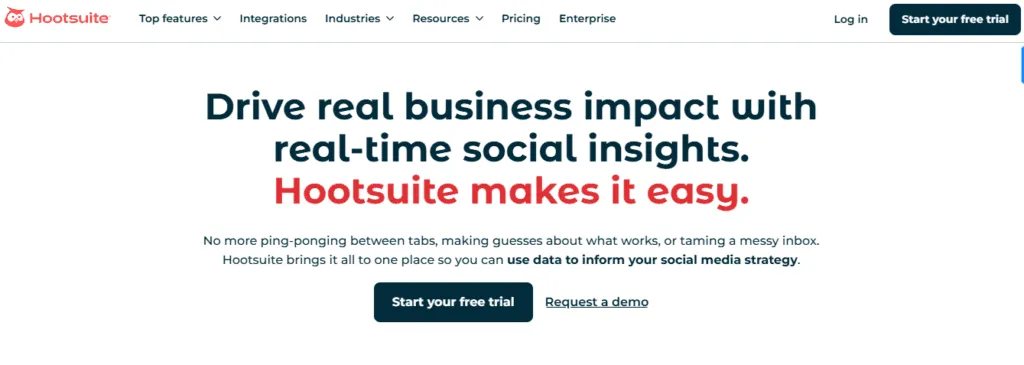
5 – Mailchimp
Mailchimp is an email marketing tool that helps businesses create, send, and manage email campaigns to customers and subscribers easily.
Key Features:
- Drag-and-drop email builder
- Email automation workflows
- Pre-designed email templates
- Basic CRM (customer database) features
| Pros | Cons |
| Beginner-friendly with easy setup | Gets expensive as your email list grows |
| Great selection of templates | Some advanced automation features are available only in paid plans |
| Automation saves a lot of manual work |
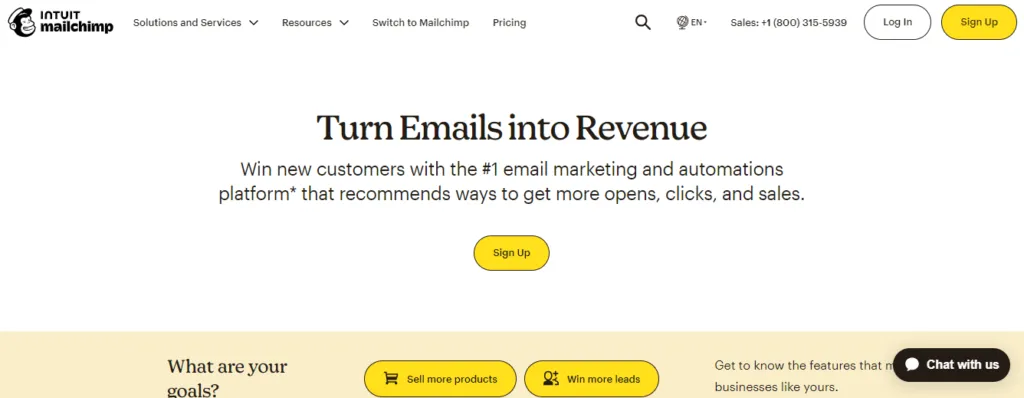
6 – HubSpot CRM
HubSpot CRM is a free platform that helps businesses manage contacts, track leads, and organize customer interactions without losing information.
Key Features:
- Contact and lead management
- Email tracking and templates
- Marketing automation (like emails and lead nurturing)
- Sales dashboard and pipeline management
| Pros | Cons |
| Centralizes all customer interactions in one place | Advanced automation, reporting, and features require paid upgrades |
| Free forever plan is very generous | Can be overwhelming if you don’t need all features at once |
| Great integrations with email, website, and other tools |
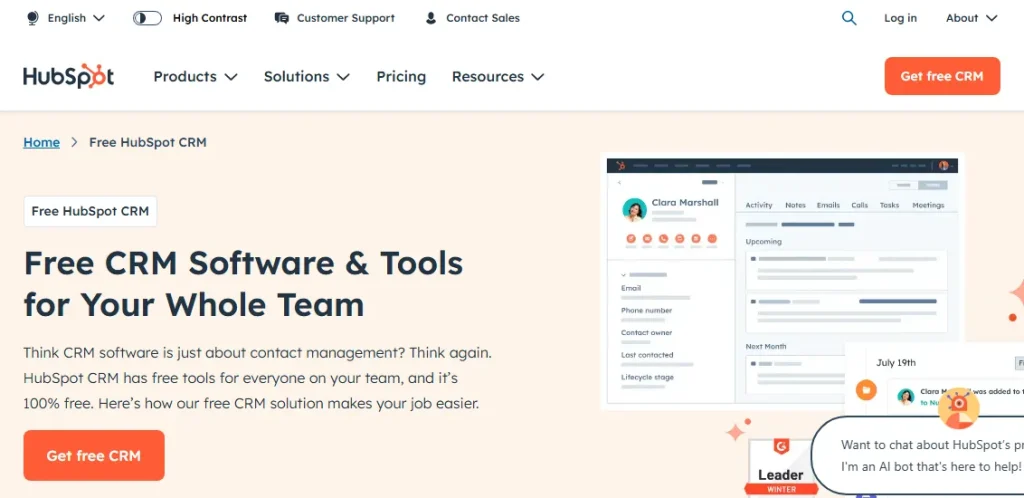
Tip: Learn at least 2–3 tools really well — they’ll help you stand out to employers!
Finale
Becoming a marketing specialist is one of the most exciting careers today! You get to be creative, strategic, and help brands grow. Plus, every campaign you create tells a story — your story of learning and success.
If you love creativity, communication, and connecting with people, this is a perfect career to start. So, take the first step today: build your skills, create your portfolio, and apply for your dream job!
People Also Ask
Q1: Do you need a degree to become a marketing specialist?
It’s recommended but not mandatory. Strong skills, portfolio, and certifications can also land you a job.
Q2: How long does it take to become a marketing specialist?
Usually 2-4 years, including education and early experience.
Q3: Which industries hire marketing specialists?
Almost all industries, including tech, healthcare, retail, finance, education, and media.
Q4: What is the most important skill for a marketing specialist?
Strong communication skills combined with digital marketing knowledge are the most important.
Need custom app with amazing features?
Get a Quote
